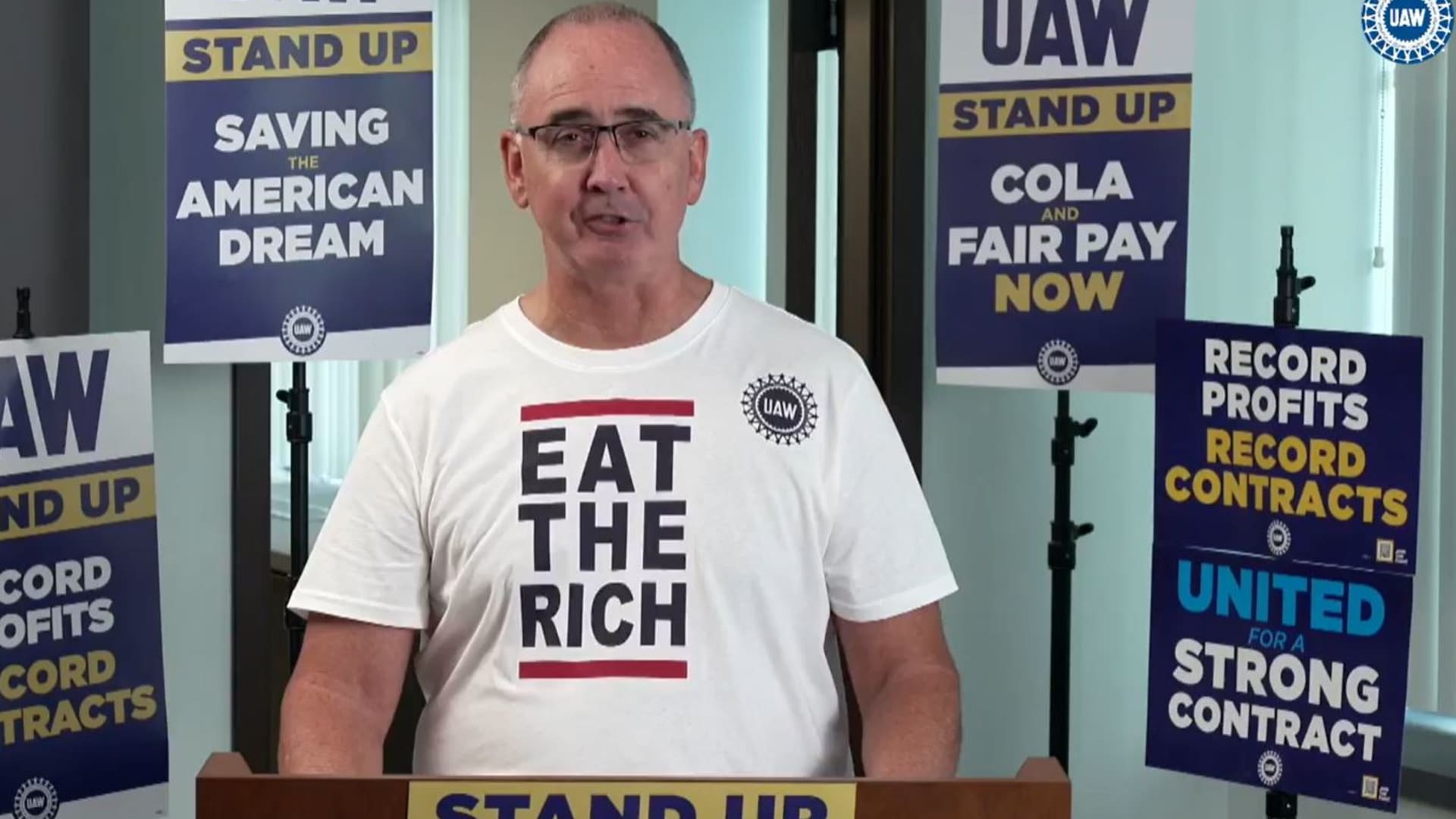DETROIT — The United Auto Workers is threatening a labor strike at Ford Motor’s largest U.S. plant if local union demands aren’t resolved by next week.
The Detroit union on Friday said nearly 9,000 UAW autoworkers at Ford’s Kentucky Truck Plant could strike at 12:01 a.m. on Feb. 23 if local contract issues remain. The plant — Ford’s largest in terms of employment and revenue — produces Ford Super Duty pickups as well as Ford Expeditions and Lincoln Navigator SUVs.
Local contracts differ from the national agreements that the union ratified in late 2023 with Ford, General Motors and Chrysler parent Stellantis. They deal with plant-specific issues and can many times go unresolved for months, if not years, after the national deals are ratified.
The union said “core issues in Kentucky Truck Plant’s local negotiations are health and safety in the plant, including minimum in-plant nurse staffing levels and ergonomic issues, as well as Ford’s continued attempts to erode the skilled trades at Kentucky Truck Plant.”
It was not immediately clear why the union set the strike deadline at the Ford plant and not others. There are 19 other open local agreements across Ford, along with several open local agreements at GM and Stellantis.
Ford, which has prided itself on its relationship with the UAW, in an emailed statement said: “Negotiations continue and we look forward to reaching an agreement with UAW Local 862 at Kentucky Truck Plant.”
The strike deadline comes a day after UAW President Shawn Fain criticized Ford CEO Jim Farley over comments he made indicating the automaker will “think carefully” about where it builds future vehicles in light of changing market conditions and contentious negotiations last year with the union, which included six weeks of targeted strikes.
Farley specifically mentioned the UAW’s October strike against the Kentucky Truck Plant as a key moment in the company’s changing relationship with the union.
“We were the first truck plant they shut down … Clearly our relationship has changed. It’s been a watershed moment for the company. Does it have business impact? Yes,” Farley said Thursday during a Wolfe Research investor conference. “As we look at this EV transition and [internal combustion engine] lasting longer and our truck business being more profitable, we have to think carefully about our footprint.”
Fain, who has been a historically combative union leader, responded, in part, by saying: “Maybe Ford doesn’t need to move factories to find the cheapest labor on Earth,” he said. “Maybe it needs to recommit to American workers and find a CEO who’s interested in the future of this country’s auto industry.”
